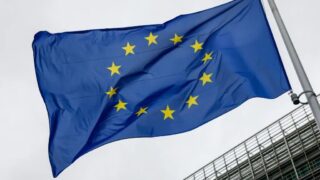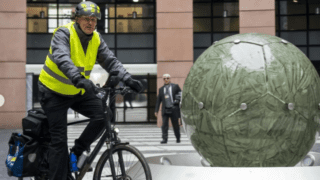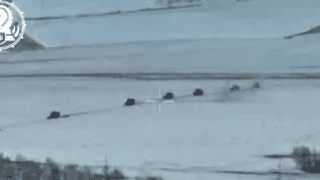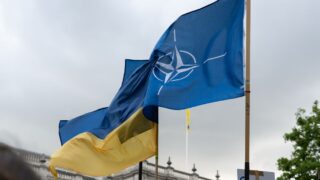
Integration of Ukraine’s defense industry with EU defense sector “serves mutual interests” – Kubilius
European Parliament member Andrius Kubilius, nominated as the next European Commissioner for Defense and Space, has emphasized that the integration of Ukraine’s defense industrial complex into the EU’s defense industry serves mutual interests.
It should be built upon successful direct investment experiences from European countries, and there are already successful examples, such as Rheinmetall factories in Ukraine or Danish procurement of weapons for Ukraine’s Armed Forces in Ukrainian manufacturers.
In an exclusive interview with Ukrinform, Kubilius outlined his vision for strengthening European-Ukrainian defense cooperation.
“As European Commissioner, I will be responsible for implementing the European Defense Industry Program. The regulatory framework for this program is currently under review in the European Parliament and EU Council,” Kubilius explained. “This program isn’t just about developing European defense industry and creating new instruments – it’s about accelerating the integration of Ukraine’s defense industry with European capabilities. This benefits both sides and allows member states to spend their Ukraine military aid allocations within Ukraine itself.”
Kubilius highlighted Denmark’s approach as a positive example, noting their direct investments in defense production at Ukrainian facilities. “Denmark has shown an excellent example that other countries will follow. This way, we can order defense equipment of the same quality but at a lower cost. The Danish experience is very valuable, as such contracts work much faster than European bureaucracy. It’s a beneficial approach,” he stated.
The nominee commissioner acknowledged Ukraine’s significant achievements in military technology, particularly highlighting their expertise in drone production, electronic warfare systems, combat-tested military know-how.
Kubilius also addressed challenges within the EU’s defense sector, particularly its fragmentation along national lines. “Fragmentation is a reality we face and must overcome. While EU agreements allow member states to maintain national approaches to their industries, this makes the entire European Union weaker than we’d like to see it,” he said.
He argued that the current geopolitical security crisis could help foster the understanding that the EU will be “much stronger in our defense sector if we act together.” This unified approach could provide the defense industry with long-term contracts through joint defense orders, increasing demand for military equipment while reducing costs for national budgets.
The integration initiative comes as part of broader EU efforts to adapt to challenges posed by Russian aggression. Kubilius suggests that closer integration would not only strengthen Ukraine’s defense capabilities but also enhance the EU’s collective security infrastructure. The European Defense Industry Program aims to create a more cohesive and efficient defense manufacturing capability across the continent, with Ukraine’s integration serving as a key component of this strategic vision.
Related:














